For the first time since 2020, cars will soon be rolling down Main Street and Center Street in downtown Northville, Michigan, again. This change isn’t just a routine traffic update; it’s the result of a heated local debate that pitted the charm of pedestrian plazas against concerns about business access and neighborhood safety. In early July 2025, a Wayne County judge ruled that Northville’s seasonal street closures were illegal and ordered the city to reopen these streets to vehicles within seven days. The ruling has quickly become the talk of the town, leaving many Northville residents and business owners wondering: What happens next? This article breaks down how we got here, how locals are reacting, and what this decision could mean for Northville’s downtown commercial viability and real estate appeal.
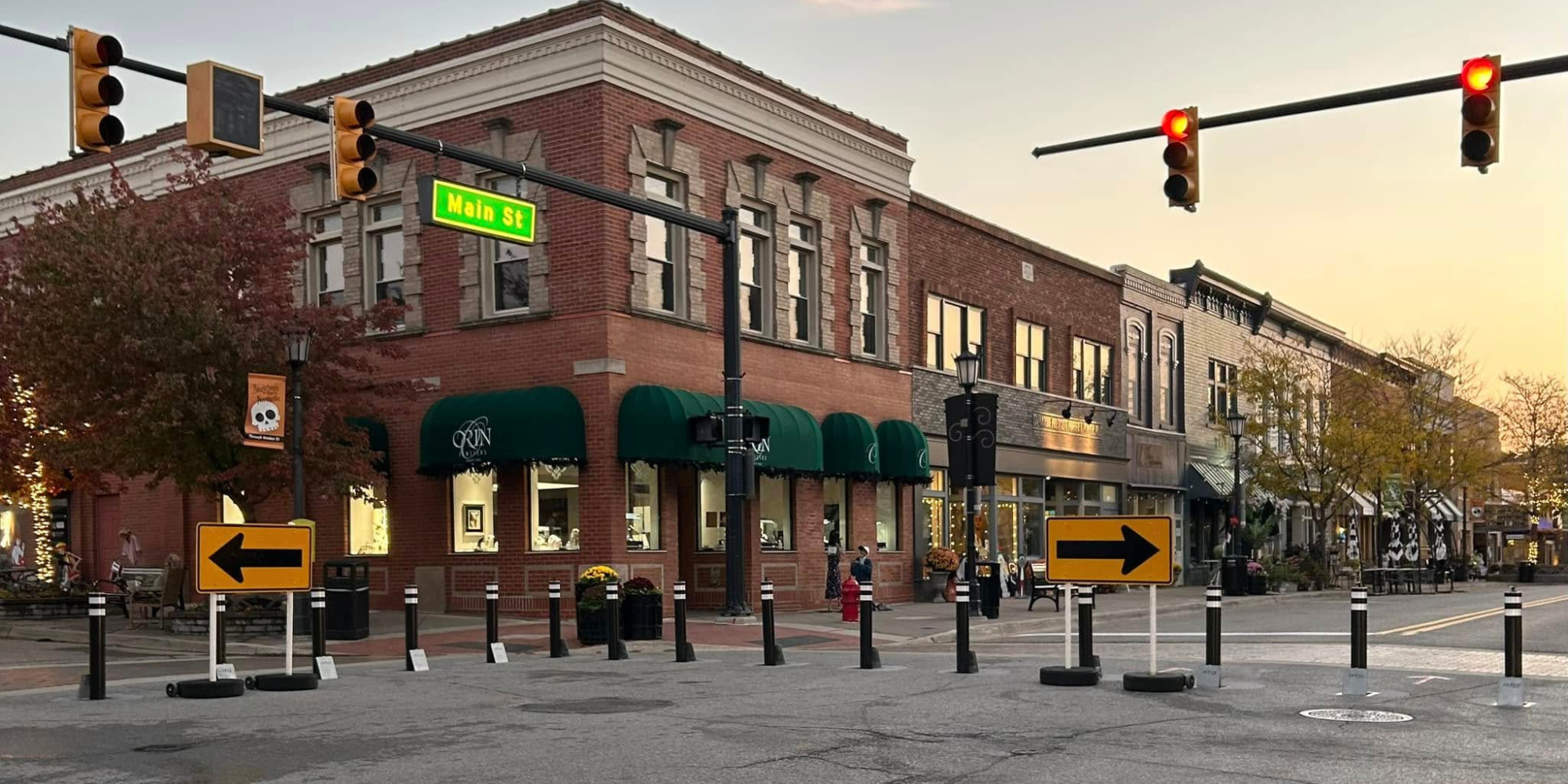 Let’s Open Northville, Facebook
Let’s Open Northville, Facebook
How Northville’s Pedestrian Street Experiment Began (The Backstory)
Downtown Northville’s street closure experiment began as a creative response to the COVID-19 pandemic. In the summer of 2020, city officials closed off parts of Main and Center streets to vehicle traffic so restaurants and shops could expand outdoors, creating a pedestrian-friendly social district. What started as a temporary safety measure soon grew into a beloved summer tradition for many. With colorful dining patios spilling into the road and families strolling freely, the heart of Northville took on a festival-like atmosphere each warm season.
City leaders extended the street closures each year from late spring through early fall, even installing retractable bollards to make blocking off traffic easier in 2023. By turning Main and Center into pedestrian zones for about half the year, Northville hoped to boost foot traffic and downtown business activity. And indeed, many residents and visitors came to cherish the car-free streets. As one local put it, “Northville has always been a great city, long before COVID, but the social district made it even better,” capturing the sentiment that the open-air downtown brought a new energy to the community.
However, not everyone was on board with making the road closures a long-term fixture. Some downtown merchants and nearby homeowners began voicing concerns as the years went on. A grassroots group called “Let’s Open Northville” formed in opposition to the seasonal barricades. They supported the initial 2020 shutdown during the height of the pandemic, but felt that continuing to ban cars every summer was never part of the original deal. By 2023, frustrations had mounted enough that the group filed a lawsuit against the city, arguing that the ongoing street closures were causing real problems, from lost business revenue to traffic being pushed into residential neighborhoods. What started as a pandemic experiment had evolved into a local controversy that would soon land in court.
The Legal Showdown: Judge Rules to Reopen Main & Center Streets
After a two-year legal battle, the dispute over Northville’s downtown streets reached its climax in July 2025. Wayne County Circuit Court Judge Charlene Elder sided with the Let’s Open Northville plaintiffs and issued a decisive ruling that sent shockwaves through the city government. In her July 9 judgment, Judge Elder granted a permanent injunction ordering Northville to remove the barriers and reopen Main and Center Streets to vehicle traffic within seven days. The judge’s written opinion didn’t mince words about why the seasonal closures had to end:
- No Legitimate Purpose Post-Pandemic: The court found that keeping the streets closed for six months each year had “no reasonable or non-arbitrary public purpose” once the COVID-19 emergency subsided. What might have been justified during a health crisis was deemed unnecessary afterward.
- Benefit for a Few vs. Harm to Many: Judge Elder noted that “only a few businesses have benefited from the closures” (primarily those able to add outdoor dining), while others, along with many residents, were negatively affected. The closures were “arbitrary” in extending special advantages to certain establishments at the expense of overall access.
- Violation of Street’s Intended Use: Importantly, the ruling pointed out that Northville’s streets have been dedicated to public travel for over 180 years. The city’s move to effectively privatize them for a social district was not done through the proper legal channels. In fact, the judge said the city violated terms of the original 1840 town plat (map) that designated Main and Center as public thoroughfares. Under Michigan law, altering or vacating a public street requires a formal process, one the city hadn’t pursued.
- Restoring Historical Norms: “Therefore, it is the ruling of this Court that the streets shall remain open, as they have for the past 180 plus years… to close only for festivals, parades, and special events as they always have,” Judge Elder wrote emphatically. In other words, Northville can still barricade downtown for the occasional fair or parade, but not for an entire summer stretch without a clear, legal justification.
Northville officials were stunned and “disappointed” by the verdict, according to City Manager George Lahanas. But they acknowledged the city must comply. In a public statement, Lahanas confirmed Northville will “fully comply with the Court’s order”, and city staff immediately began planning the removal of the bollards and reopening of the streets. By July 15, the city’s charming downtown was set to return to its traditional traffic flow, cars, trucks and all, for the first time in five summers.
It’s worth noting that the court’s decision allows temporary street closures for special events to continue as before. Northville has always hosted festivals, parades, and events like summer concerts that involve briefly shutting down streets, and that won’t change. What’s ending are the long-term seasonal closures. As of this writing, the city has not announced any appeal of Judge Elder’s ruling. Unless an appeal is filed (or the city finds a legal workaround in the future), Northville appears bound to keep its downtown streets open to traffic on a regular basis moving forward.
For a deeper dive into why Northville consistently ranks as one of Metro Detroit’s most sought-after towns, check out “Discovering Northville, Michigan: One of Metro Detroit’s Hidden Gems.
.png) Let’s Open Northville, Facebook
Let’s Open Northville, Facebook
Community Reactions: Mixed Feelings in a Divided Town
The judge’s order to reopen Main and Center Street immediately lit up local conversation on social media, at coffee shops, and around dinner tables. Northville’s roughly 6,000 residents have watched this issue evolve over years, and as expected, opinions are strongly split. Neighbors and even business owners who normally get along found themselves on opposite sides of this debate. Here’s a look at what people are saying:
Many Residents and Businesses Cheer the Reopening:
- Now we get commerce back,” said Northville resident Brian McCafferty, celebrating the return of cars downtown. He and others believe that restoring vehicle access will revitalize business, noting that in American towns, many customers still rely on cars. Some retailers on Center Street, like boutique owner Prudence Kauffman, reported that once the streets were closed, customer traffic and sales plummeted (in Kauffman’s case, from about $6,000 per day to $1,500). They’re eager to regain the visibility and convenient parking that come with an open street.
- Homeowners near downtown also breathed a sigh of relief. Mary Elwart-Keys, founder of Let’s Open Northville, lives just outside the closure zone and testified that detoured cars had been speeding down narrow neighborhood streets, creating hazards and even damaging property. With Main and Center open again, locals on side streets expect less congestion on their blocks. “They’ll have much freer access… more available parking… less congestion in the residential areas,” explained Dennis Engerer, a business owner who supported reopening after seeing accidents near his home. For these residents, the judge’s decision feels like a return to normalcy and safety.
- Some also frame it as a victory for fairness and tradition. Northville’s downtown had thrived for generations with cars and pedestrians coexisting, and opponents of the closure felt a small group shouldn’t permanently change that balance. The fact that emergency vehicles and school buses had to navigate around the barricades was a common complaint. “It was unsafe for school buses to be diverted through residential neighborhoods,” Elwart-Keys noted, pleased that those detours will end now. In short, this camp believes open streets will make downtown more accessible and equitable for all businesses, visitors, and residents.
Others Mourn the Loss of Pedestrian Plazas:
- On the other side, plenty of Northvillians are disheartened to see the cars come back. For families with young children, the car-free downtown felt like a safe haven. “We really enjoy the safety of the streets being closed to traffic,” said Mary Ellies, a mother of two, noting how pleasant it was to let her kids run around downtown without worry. Parents and retirees alike treasured the quieter, more relaxed vibe that the pedestrian zone created.
- Local restaurateurs and bar owners largely loved the street closures, which let them expand outdoor seating and attract crowds on warm summer evenings. For example, Michelle Lussier, owner of two popular downtown eateries (Lucy & The Wolf and Table 5), invested in outdoor dining structures and says she relied on those extra tables to accommodate demand. Several restaurants thrived with the added capacity, and they fear a step backward. “Business [was] thriving” with the streets closed, as Ellies observed, and those folks worry that reopening to traffic will shrink the vibrant sidewalk café scene that had become a Northville hallmark. Some staff who helped build patios and outdoor amenities are concerned their investment of time and money may not pay off if those patios have to shrink or come down.
- There’s also a sentimental aspect: community atmosphere. Many residents felt the pedestrian-only zone made downtown Northville special; it stood out among Metro Detroit suburbs as a place you could grab a drink and wander the street, or enjoy live music on Friday nights without cars zooming by. “It gave the town a unique charm and a sense of community,” longtime residents Laurie and Tim Johnson told reporters, worrying that Northville might lose a bit of its “hallmark vibrancy” without the pedestrian plaza. To these locals, the judge’s ruling feels like a step backward, potentially turning Northville’s downtown from a lively gathering space back into just another thoroughfare.
It’s clear that both perspectives come from a place of love for Northville. Whether pro-closure or pro-reopening, people want a thriving, safe downtown. The debate has been passionate, but many are now calling for unity. “Let’s be neighborly again, let’s get past this and be positive,” said Elwart-Keys, acknowledging the need to heal divisions and work together on Northville’s future.
Impact on Northville’s Business and Real Estate Market
Beyond the immediate reactions, the street reopening has broader implications for Northville’s economy and even its real estate landscape. Downtown Northville isn’t just a dining destination; it’s an anchor for property values and the community’s identity. Here are a few key insights into how this change could affect local business owners, commercial viability, and real estate trends:
- Business Visibility and Foot Traffic: For retail stores and service providers, the return of cars could be a welcome boost. Some shop owners testified that when the streets were closed, they lost out on impulse visits from drivers passing by or struggled to receive deliveries. With vehicles back, these businesses may regain some drive-by exposure. As one resident quipped, “it takes cars to maintain commerce” in our current economy. On the flip side, businesses that thrived on heavy foot traffic – notably restaurants and bars that capitalized on patio seating – will have to adjust. They might see fewer casual strollers and need to get creative (for instance, using sidewalk or “parklet” dining platforms in parking spaces instead of sprawling across the whole street). Northville’s Downtown Development Authority has anticipated this, rolling out a “kit of parts” to help eateries transition their outdoor setups into curbside zones without blocking traffic. The goal is to keep downtown lively and restaurant-friendly, even with cars in the mix.
- Commercial Real Estate and Downtown Viability: A vibrant downtown typically means strong demand for storefronts and office space. Over the past few years, Northville’s unique pedestrian setup attracted new eateries and boosted evening crowds, which is great for commercial landlords. If those crowds dwindle, there’s a risk some marginal businesses could see revenue dip and possibly close, leading to vacancies. However, many downtown business owners remain optimistic and adaptable. The city is still allowing outdoor dining, just not in the middle of the road. And all those popular events, from summer concerts to holiday festivals, will continue to draw people downtown (the ruling explicitly permits street closures for events, so Northville’s festivals are safe). In fact, the DDA has 45+ special events planned this year, and none are being canceled. Consistent programming should keep foot traffic flowing. For commercial real estate values, stability is key, and now that the legal uncertainty is resolved, business owners and property investors can plan for the future with a bit more clarity (whether they agree with the outcome or not).
- Residential Real Estate Appeal: Northville is one of Metro Detroit’s most desirable towns, known for its historic charm, top-rated schools, and strong sense of community. Home prices here rank among the highest in the region (the median sale price in mid-2025 was around $600–700K, reflecting Northville’s premium status). How does downtown factor into this? A lot. Walkability and a charming city center can add significant appeal for homebuyers. Over the last few years, some buyers specifically loved Northville’s semi-pedestrian downtown; it felt family-friendly and vibrant, like a small slice of Europe or Ann Arbor right in suburban Detroit. Those folks may be disappointed to see the pedestrian zone scaled back. On the other hand, other buyers prefer convenience: being able to drive straight to their favorite bakery or have easier access to their downtown condo parking. They might view the reopening positively. In general, as long as downtown Northville remains attractive and active, property values should remain strong. The configuration of the streets is just one factor among many (others include the school system, parks, and new developments in town). It’s worth noting that Northville is in the midst of a major development at the old racetrack site, which will add new homes and possibly new businesses. City planners even studied traffic patterns for that project with and without the downtown closures, underscoring how central this issue became to town planning. The resolution of the street debate provides a more predictable environment as Northville grows.
- Property Rights and Precedent: One reason this case drew so much attention is its property rights dimension. Downtown building owners have long relied on the streets for customer access, deliveries, and parking, essentially an implied right-of-way. The court affirmed those rights, which could make other cities think twice before shutting streets for extended periods. (Indeed, observers in other Michigan cities like Ann Arbor have been watching this outcome, wondering if their own downtown “street dining” programs might face legal challenges next.) For Northville, the precedent is clear: any future attempt to permanently pedestrianize Main or Center would likely require a formal street vacation process, input from all stakeholders, and perhaps compensation for affected property owners. That’s a high bar, meaning the town will probably focus on less drastic measures to improve downtown life.
Northville’s businesses and real estate market will adjust to this new-old normal. The downtown might lose a bit of its pandemic-era novelty, but it’s not losing its fundamentals: a picturesque streetscape, beloved shops and restaurants, and an engaged community. Investors and entrepreneurs will be watching how downtown foot traffic and sales trend in the coming months. If some eateries see declines, we might see new concepts or formats pop up to take advantage of the reopened streets (think: drive-by coffee kiosks or more retail-focused ventures). Northville has a history of resilience and reinvention, and this chapter is just one part of its evolving story.
To get the most from your Northville home, especially in evolving market conditions, see our guide on “Essential Repairs Before Selling a Home in Northville.
.png) Let’s Open Northville, Facebook
Let’s Open Northville, Facebook
What’s Next for Downtown Northville?
As Northville removes the barricades and cars return to Main and Center, the city and community are focused on making the transition as smooth as possible. City officials have coordinated with downtown businesses to help them adapt, for instance, assisting restaurants in moving outdoor seating off the full roadway and onto sidewalks or designated parking-space platforms. Fortunately, Northville isn’t starting from scratch here; the town had outdoor dining parklets for years before the 2020 closures, so many eateries are familiar with these setups.
Residents and visitors probably won’t notice a drastic change in the downtown’s appeal once the dust settles. You’ll still be able to sip a locally-made coffee or an ice-cold craft beer on a patio, chat with neighbors, and enjoy live music on a Friday night. The Northville Social District, which allows adults to wander downtown with alcoholic beverages in marked cups, is not going away at all, as some initially feared. “We still have our Social District… Everybody can still have a cocktail, walk around, and enjoy everything,” Mr. McCafferty reminded neighbors, to dispel worries that reopening streets meant the end of downtown fun. In short, the spirit of downtown Northville remains intact.
City leaders are also revisiting long-term plans for downtown improvements. The controversy has highlighted the need for a balanced approach that supports businesses and keeps downtown safe and welcoming. Ideas being floated include: better signage to direct visitors to parking lots (so they don’t need to circle the block), traffic calming measures to ensure cars drive slowly and cautiously through the shopping district, and perhaps designated “pedestrian days” or evenings when the streets could still be closed occasionally to recreate the car-free atmosphere. While the court ruling limits full-time closures, nothing prevents Northville from being creative within the rules, for example, organizing more frequent street festivals or weekend night street markets that temporarily block traffic (with proper permits). These could offer the best of both worlds: regular access for motorists most of the time, and special pedestrian-centric events that everyone can look forward to.
Finally, there’s a question of whether the city will appeal the ruling or pursue a legal avenue to officially designate the streets for seasonal pedestrian use. As of now, no appeal has been announced, and given the clear reasoning in Judge Elder’s decision, the city may opt to avoid more legal costs. Instead, the focus is on compliance and making the most of the situation. Mayor Brian Turnbull, who had been a staunch supporter of the closures, has been relatively quiet publicly aside from the official statement. It’s a good bet that city council and staff will be gathering extensive feedback in the coming months to gauge how the street reopening is affecting downtown. This data, from sales figures to traffic counts, will inform any future proposals. Who knows, if community sentiment shifts or a solid compromise emerges, Northville might find a way to formally create a pedestrian zone that passes legal muster. For now, though, the cars are back and the community is adapting.
Moving Forward in the Heart of Northville
Northville’s experiment with car-free streets may be ending (for now), but the town’s enduring strengths carry on. This picturesque city has long balanced historic charm with modern living, and that doesn’t change with a few more cars on the road. If anything, the lively debate over Main and Center has shown how deeply Northvillians care about their community’s future. Both sides want a thriving downtown and a great quality of life, essential ingredients that also keep real estate in Northville in high demand.
As the summer continues, you’ll likely see both diners on patios and classic cars cruising down Main Street. It’s a new chapter that honors Northville’s 150-year heritage as a crossroads, while still celebrating the vibrant community life that makes this city special. Families will still find plenty of safe, walkable spaces to enjoy, and business owners will continue to innovate in serving customers, be it via curbside pickup or inviting storefronts. The key is that Northville remains, at its core, a warm and welcoming hometown.
For homeowners weighing a future sale, it’s smart to understand all costs upfront—check out “What Fees Do Sellers Pay in Northville?” for a detailed breakdown.
For those invested in Northville, whether you’re a long-time resident, a prospective homebuyer, or a local business owner, the real takeaway is the importance of staying engaged. City decisions like these can shape the fabric of downtown and even influence property values over time. In the end, Northville’s charm isn’t just about whether cars or café tables occupy Main Street; it’s about the people and local businesses that give the town its character. Experts in Metro Detroit real estate will tell you that a strong community vibe often translates into strong property values. By working together and finding common ground, Northville is poised to keep its unique vibe alive.
If you’re curious about how changes in downtown Northville might affect your plans, from real estate opportunities to opening a business, now is a great time to reach out to local experts. Stop by downtown and see the changes for yourself, chat with shop owners, or connect with a Northville real estate professional for insight. Northville’s story is still unfolding, and being an informed, involved community member is the best way to ensure this beloved town continues to prosper. Whether you’re looking to make Northville your home or invest in its future, one thing is certain: Northville is open for business, in more ways than one, and its best days are ahead.
DON'T KEEP US A SECRET - SHARE WITH A FRIEND OR ON SOCIAL MEDIA!
THINKING OF MOVING TO Northville, OR LOOKING TO RELOCATE IN THE AREA? VIEW A LIST OF CURRENT HOMES FOR SALE BELOW.
Browse Northville, MI Real Estate Listings
The Perna Team and Michael Perna are the best real estate agents in Northville and Ann Arbor. The Perna Team and Michael Perna have been hired as a real estate agent by hundreds of home owners to sell their homes in Northville and Ann Arbor.
The Perna Team were great to work with, and we’d absolutely recommend them to anyone buying a home in Metro Detroit. I even asked for a few of her business cards in case I run into someone who needs a realtor. Thanks again for everything!
Posted by Michael Perna on
.87.png)




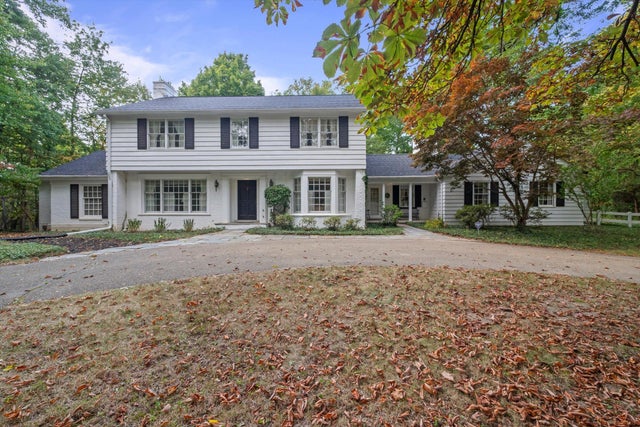
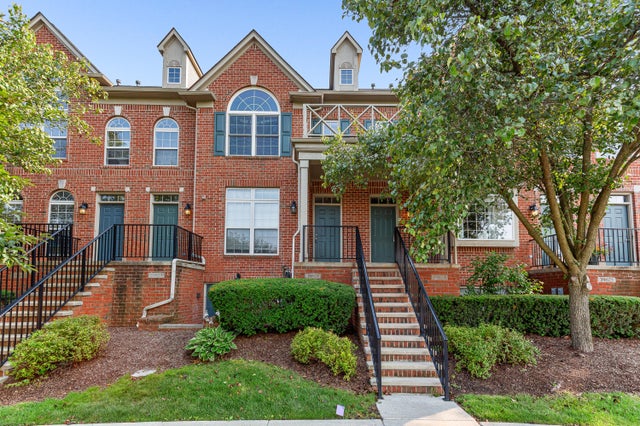

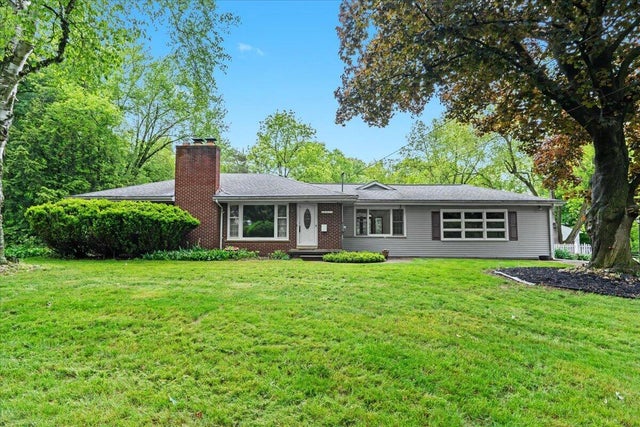
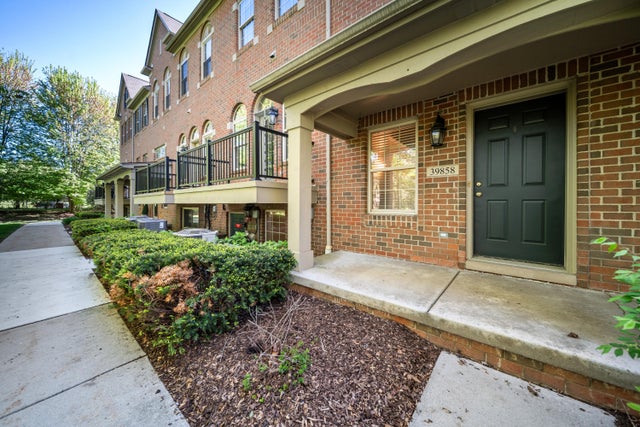


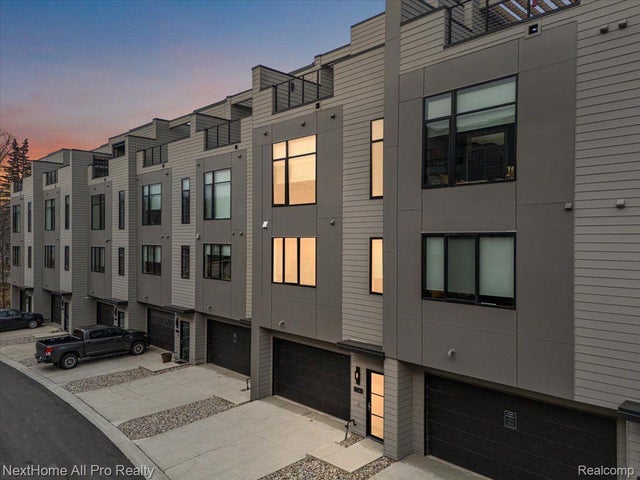
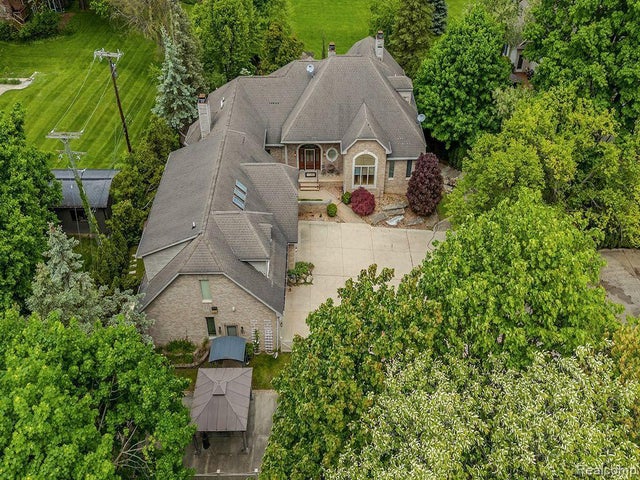
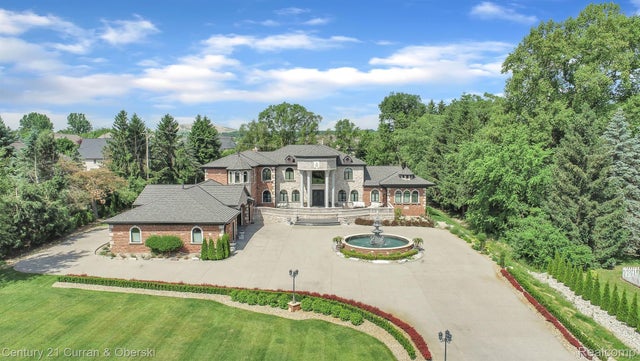
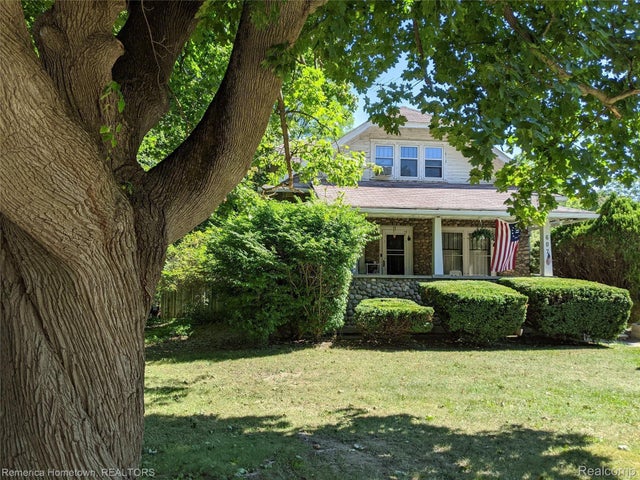
Leave A Comment